The ESS Department extends our sincere gratitude to our Emeritus Faculty for their remarkable service and lasting impact on our community. Your dedication, expertise, and commitment to excellence have shaped the lives of countless students and enriched our department. Your legacy continues to inspire both faculty and students alike, and we are deeply appreciative of the foundation you have built. Thank you for your contributions and for being a vital part of our journey.
We would also like to extend our gratitude to Professor Emerita and unofficial Department Historian Jody Bourgeois for her invaluable assistance in gathering the information necessary to compile these biographies. We greatly appreciate her time and guidance.
The dates below reflect the amount of years faculty members were at ESS from hiring date to AY 2024-2025, when the Department celebrated its 130th Anniversary.
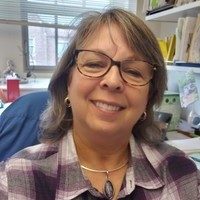 Kathy Troost
Kathy Troost
Teaching Professor Emerita – 12 years at ESS
Kathy Troost brought her skills from a career at Shannon & Wilson to help develop and lead ESS’ MESSAGe program. Founder of GeoMapNW, she has directed the production of highly detailed geologic maps of the Seattle region; her knowledge of regional geology is unsurpassed.
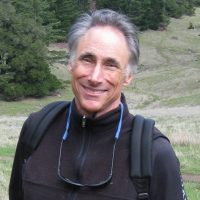 George Bergantz
George Bergantz
Professor Emeritus – 36 years at ESS
An expert on the physics of magmas – especially of granite – George Bergantz was recently awarded AGU’s William Bowie Medal for his career contributions to science and scientific collaboration. He has also taught innumerable students in the course “Living with Volcanoes.”
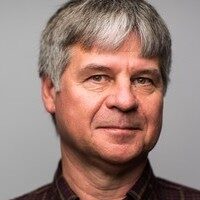 Ron Sletten
Ron Sletten
Research Professor Emeritus – 27 years at ESS
Ron Sletten’s expertise lies in the complex physico-bio-geochemistry of soils. Focused on cold-climate soil processes, Ron’s research and field areas have ranged from Antarctica and Svalbard to Gale Crater on Mars and the flanks of Mauna Loa.
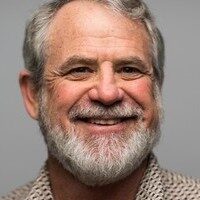 Paul Bodin
Paul Bodin
Research Professor Emeritus – 18 years at ESS
Seismologist Paul Bodin joined ESS from the University of Memphis to become manager of the Pacific Northwest Seismic Network. His research has spanned topics such as earthquake source physics and specific site responses (e.g. soil liquefaction) to earthquake shaking.
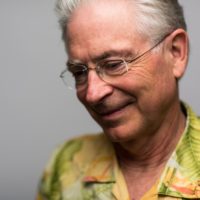 J. Michael Brown
J. Michael Brown
Professor Emeritus – 40 years at ESS
Mineral physicist Mike Brown studies the formation and transformation of minerals at high pressures – conditions that exist deep in the Earth. Mike was instrumental in the merger of Geophysics and Geological Sciences – ESS’ first chair – and in the renovation of Johnson Hall.
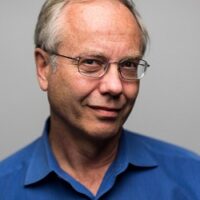 Bruce Nelson
Bruce Nelson
Professor Emeritus – 38 years at ESS
An isotope geochemist, Bruce Nelson established the Isotope Geochemistry Laboratory in the department, applying analyses to a range of problems from the origin and evolution of continental crust to the tracing of human-sourced toxic metals accumulating in Puget Sound.
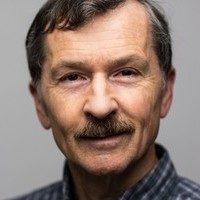 Ed Waddington
Ed Waddington
Professor Emeritus – 33 years at ESS
Glaciologist Ed Waddington studies the way that glacier ice forms from snow, and how that ice then accumulates and deforms – work that has made key contributions to interpreting long paleoclimate records from polar ice cores from Antarctica and Greenland.
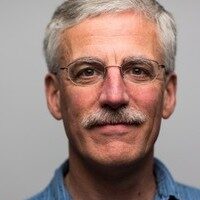 Ken Creager
Ken Creager
Professor Emeritus – 38 years at ESS
Seismologist Ken Creager’s career has spanned research on the Earth’s core to the structure of subduction zones such as our own Cascadia. Recently, he has spearheaded much of the work on episodic “slow slip and tremor” at the boundary between subducting and overriding plates.
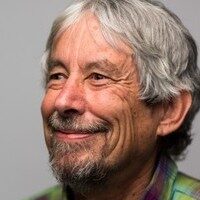 Howard Conway
Howard Conway
Research Professor Emeritus – 33 years at ESS
Glaciologist Howard “Twit” Conway has focused on the history and behavior of parts of the Antarctic ice sheet, especially the critical West Antarctic Ice Sheet. His work has also addressed the behavior of snow, including conditions under which avalanches occur.
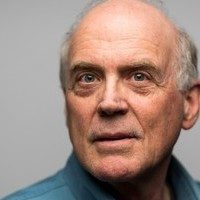 Robert Holzworth
Robert Holzworth
Professor Emeritus – 42 years at ESS
Atmospheric and space physicist Bob Holzworth studies the influence of lightning and other phenomena on the upper atmosphere and beyond. He founded and directs the World Wide Lightning Location Network, which each year locates over 200 million lightning strikes globally and in real time.
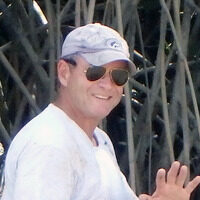 Charles Nittrouer
Charles Nittrouer
Professor Emeritus – 26 years at ESS
Geological oceanographer Chuck Nittrouer has led expeditions to study continental margins around the world, focused on their sedimentology and stratigraphy. He has been instrumental in developing several large funding initiatives bridging land-to-sea, or “source to sink.”
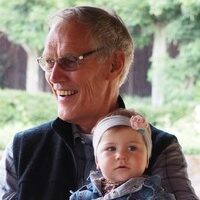 Bernard Hallet
Bernard Hallet
Professor Emeritus – 43 years at ESS
Physical geologist Bernard Hallet has applied physico-chemical principles to a variety of geological and geomorphic problems on Earth as well as on Mars. He was initially brought to UW’s QRC to establish a laboratory for the study of periglacial processes.
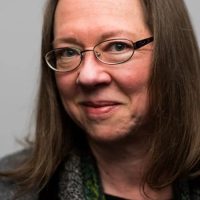 Heidi Houston
Heidi Houston
Professor Emerita – 12 years at ESS
Geophysicist Heidi Houston has focused on earthquake physics and fault mechanics, particularly as associated with subduction zones, including very large earthquakes, deep earthquakes and tremor. She retired from UW to continue her career at USC.
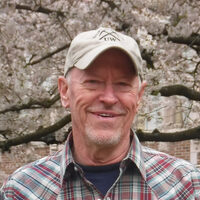 Darrel Cowan
Darrel Cowan
Professor Emeritus – 50 years at ESS
Structural geologist Darrel Cowan studies the evidence of plate tectonics (e.g. subduction- generated melange) in rocks. Recent work has focused on the allochthonous terrane of Baja B.C. and on geologic history and faulting in Death Valley – where he has taken many students.
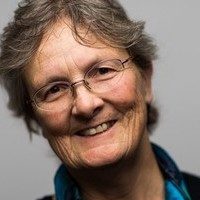 Jody Bourgeois
Jody Bourgeois
Professor Emerita – 44 years at ESS
Sedimentary geologist Jody Bourgeois reconstructs events and environments in sediments and sedimentary rocks, particularly in marine and coastal settings. She helped establish the field of tsunami geology. Jody has also studied and taught in the history of geology.
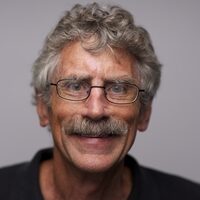 Robert Odom
Robert Odom
Research Associate Professor Emeritus – 31 years at ESS
Geophysicist Bob Odom is an expert on acoustic and elastic wave propagation. These studies help define structure and motion within ocean waters, as well as on the seabed and, in some cases, the overlying ice. Bob has worked much of his career at the UW Applied Physics Laboratory.
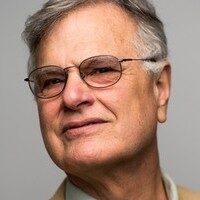 Alan Gillespie
Alan Gillespie
Research Professor Emeritus – 39 years at ESS
Quaternary geologist Alan Gillespie is an expert in remote sensing methods, which he has used to study a range of surface processes, from histories of desert alluvial fans to glacial advance and retreat in Asia, to the geomorphology of Valles Marineris on Mars.
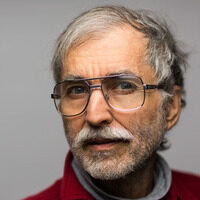 Steve Warren
Steve Warren
Professor Emeritus – 43 years at ESS
Atmospheric scientist and climatologist Steve Warren is well known for his studies of albedo – how the sun’s radiation is reflected (e.g. by clouds, snow and ice). He has applied this expertise in examining possible scenarios for “snowball Earth” – times the Earth nearly froze.
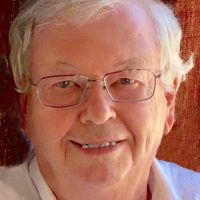 John Booker
John Booker
Professor Emeritus – 53 years at ESS
Geophysicist John Booker earned AGU’s William Gilbert Award for his career of work measuring geomagnetic induction to elucidate Earth’s lithospheric and mantle structure. His studies have involved field campaigns in Cascadia, on the San Andreas fault, and in Tibet and Argentina.
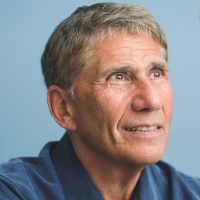 Stanley Chernicoff
Stanley Chernicoff
Senior Lecturer – 27 years at ESS
Award-winning professor extraordinaire, Stan Chernicoff has taught and inspired on the order of 50,000 students. Other contributions include establishing the CLUE peer mentoring program, academic advising for UW athletes, and the recent podcast series “Extracurricular in Particular.”
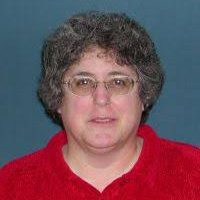 Patricia Anderson
Patricia Anderson
Research Professor Emerita – 30 years at ESS
Palynologist Pat Anderson has applied her paleobotanical research to problems in archaeology, paleoclimatology, biostratigraphy and environmental reconstruction. Much of her work has been conducted in Beringia – the region from Alaska across to Chukotka in the Russian far east.
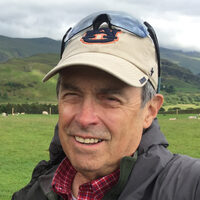 Stephen Malone
Stephen Malone
Research Professor Emeritus – 39 years at ESS
With a career focused on volcanic seismology, Steve Malone was “at the right place at the right time” when Mount St. Helens “woke up.” Steve was instrumental in developing and growing the Pacific Northwest Seismic Network and in helping facilitate global sharing of seismic data.
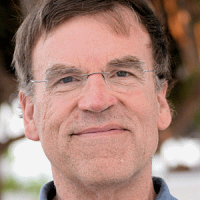 Brian Swanson
Brian Swanson
Research Associate Professor Emeritus – 27 years at ESS
Atmospheric physicist Brian Swanson has focused on ice in the atmosphere, such as the growth and sublimation of ice particles in the troposphere. He has also contributed his expertise to studies examining life in frozen environments – e.g. cold and salty water and ice.
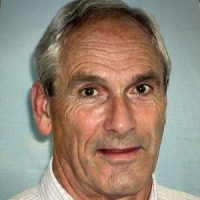 Ron Merrill
Ron Merrill
Research Professor Emeritus – 56 years at ESS
Geophysicist Ron Merrill is one of the world’s experts on the Earth’s magnetic field, including its generation and its history, as well as how the rock record of that history is used to reconstruct plate motions through time. Ron has authored technical and popular books on geomagnetism.
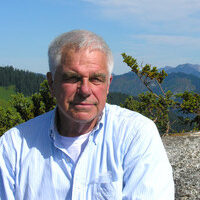 Eric Cheney
Eric Cheney
Professor Emeritus – 60 years at ESS
Economic geologist Eric Cheney’s career includes working on metallic and nonmetallic ores, examining the social impacts of using Earth materials, and geologic mapping and history of the Pacific Northwest. Eric also introduced the concept of and named the ancient continent of Vaalbara.
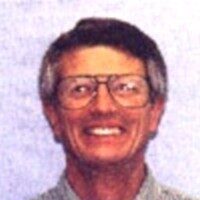 Robert Crosson
Robert Crosson
Professor Emeritus – 58 years at ESS
Seismologist Bob Crosson conducted some of the earliest modern studies of the deeper structure and tectonics of the Puget Sound region, as well as the Washington Cascades, using seismic velocities. Bob helped establish the Pacific Northwest Seismic Network. Bob passed away in the spring of 2025.
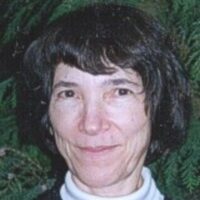 Marcia Baker
Marcia Baker
Professor Emerita – 44 years at ESS
Atmospheric geophysicist Marcia Baker’s myriad studies of different aspects of cloud physics have included work on droplet formation, turbulent mixing and conditions that lead to lightning. Her research has important implications for climate modeling.
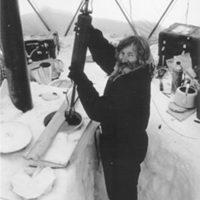 Charles Raymond
Charles Raymond
Professor Emeritus – 55 years at ESS
Glaciologist Charlie Raymond is an expert on the dynamics of glaciers and ice sheets – how glaciers deform and flow, how they interact with the terrain and how they are related to Earth’s climate. Charlie was awarded the Louis Agassiz Medal of the European Geophysical Society.
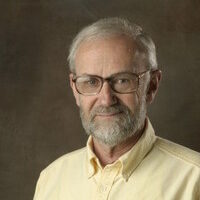 Bernard Evans
Bernard Evans
Professor Emeritus – 55 years at ESS
Metamorphic and igneous mineralogist and petrologist Bernard Evans has led a distinguished career studying how the details of a rock’s structure and chemistry generate “big picture” stories of Earth’s crustal evolution. In 2023 a new mineral was named bernardevansite in his honor.